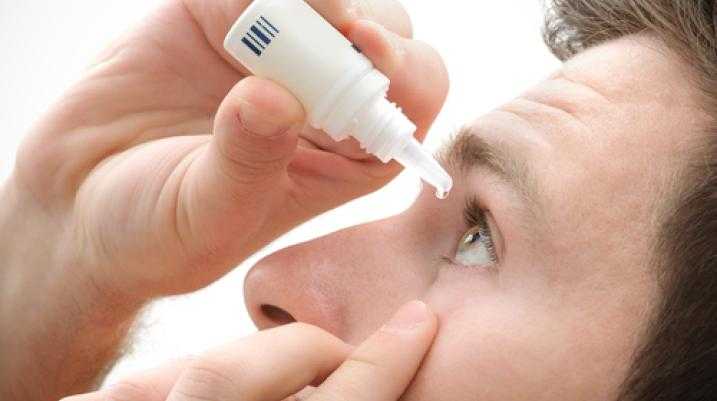Everything You Need to Know about the Eye Drops Recalls

As of 6/25/2024, Morgan & Morgan is no longer accepting any claims for this case. View our other product recalls by clicking here.
Lawsuits are popping up all over the country after multiple consumers reported eye infections after using eye lubricant drops. The FDA first learned about the Pseudomonas aeruginosa outbreak in December and discovered the link to the EzriCare drops back in January. Since then, the cases have begun to snowball as more and more information behind the contaminated drops has come to light. As of March 2023, other tear lubricants companies, like Pharmedica and Apotex, have been linked to at least 62 infections across the following 13 states that have led to permanent vision loss, hospitalization, and death:
- California
- Colorado
- Connecticut
- Florida
- Illinois
- New Jersey
- New Mexico
- New York
- Nevada
- Texas
- Utah
- Washington
- Wisconsin
Why Is Carbapenem-Resistant Pseudomonas Aeruginosa Seriously Dangerous?
P. aeruginosa is a gram-negative aerobic bacteria capable of causing a multitude of infections, and according to the National Library of Medicine, once infected with it, it is incredibly difficult to treat. Carbapenem-resistant bacteria, also commonly known as "superbugs," are dangerous microorganisms. These "superbugs" are hazardous due to their ability to withstand the carbapenem class of antibiotics, a type often used to treat severe infections.
According to research provided by the Mayo Clinic, bacteria that survive these antibiotics are often resistant to most, if not all, known antibiotics and are most commonly spread in healthcare settings. Without effective antibiotics, the bacteria will rapidly self-replicate, and the infection may spread to distant sites throughout the host's body.
In the case of the affected eyedrops, the strain of bacteria associated with the outbreak is k the Verona integron-mediated metallo-β-lactamase and Guiana extended-spectrum-β-lactamase (VIM-GES-CRPA). This is the first time this particular form of the strain has been reported in the United States. Individuals who have used the contaminated eye drops have reported experiencing the following symptoms of CRPA eye infections:
- Blurred vision
- Discharge from the eye
- Light sensitivity
- Pain or eye discomfort
- Redness and inflammation of the eye
If you or someone you know are currently experiencing any of the CRPA eye infections symptoms listed above after using the eye drops, as the FDA has stated, we highly recommend you immediately stop all use of the eye drops and seek out medical attention.
Breaking Down the Eye Drops Recall Timeline
- January 24, 2023, EzriCare became aware that the CDC has conducted an investigation on specimens collected between May 2022 and December 2022.
- January 31, 2023, FDA reports at least 55 patients in 12 states have been infected by antibiotic-resistant Pseudomonas aeruginosa, according to the Centers for Disease Control & Prevention.
- February 1, 2023, Global Pharma Healthcare recalled EzriCare Artificial Tears and DELSAM Pharma's Artificial Tears.
- February 2, 2023, Global Pharma Healthcare voluntarily recalled all lots of Artificial Tears Lubricant Eye Drops distributed by Aru Pharma Inc.
- February 3, 2023, the FDA issued a warning stating that the FDA also placed Global Pharma Healthcare Private Limited on an import alert after providing an inadequate response to a records request. As well as for the company not complying with current good manufacturing practice(CGMP) requirements.
- February 22, 2023, the FDA also recommended the recall of Delsam Pharma's Artificial Eye Ointment after warning that it not be purchased or used also due to the potential bacterial contamination.
- March 1, 2023, CDC, in partnership with state and local health departments, identified 64 patients in 13 states who, after using over ten different brands of artificial tears, including EzriCare, Delsam, and Pharmedica with VIM-GES-CRPA, were infected with a rare strain of extensively drug-resistant P. aeruginosa. The CDC also reported eight cases of consumer vision loss.
- March 2, 2023, Apotex, under the guidance of the FDA, recalled six lots of Brimonidine Tartrate Ophthalmic Solution, 0.15%, after an investigation discovered cracks in a handful of the product's bottle caps.
- March 3, 2023, Pharmedica USA recalls the Purely Soothing 15% MSM eye drops due to non-sterility.
During this investigation and information provided by the National Institution of Health, it has come to light that the EzriCare drops are, in fact, not FDA-approved products and are legally marketed under a regulatory pathway that allows the sale of over-the-counter products that meet specific requirements. The FDA typically does not review or approve over-the-counter drugs like those lubricant eye drops being recalled.
If you or someone you know has used or has previously purchased one of the contaminated eye products mentioned, contact your medical care provider for help. For any questions regarding the recall, or if you believe you are a loved one has suffered an injury or vision loss due to the artificial tears, we may be able to help you. To learn more information about the eye drops case, you can contact our attorneys by completing our free, no-obligation case evaluation form today.
Injured? Getting the compensation you deserve starts here.

Injured?
Not sure what to do next?
We'll guide you through everything you need to know.